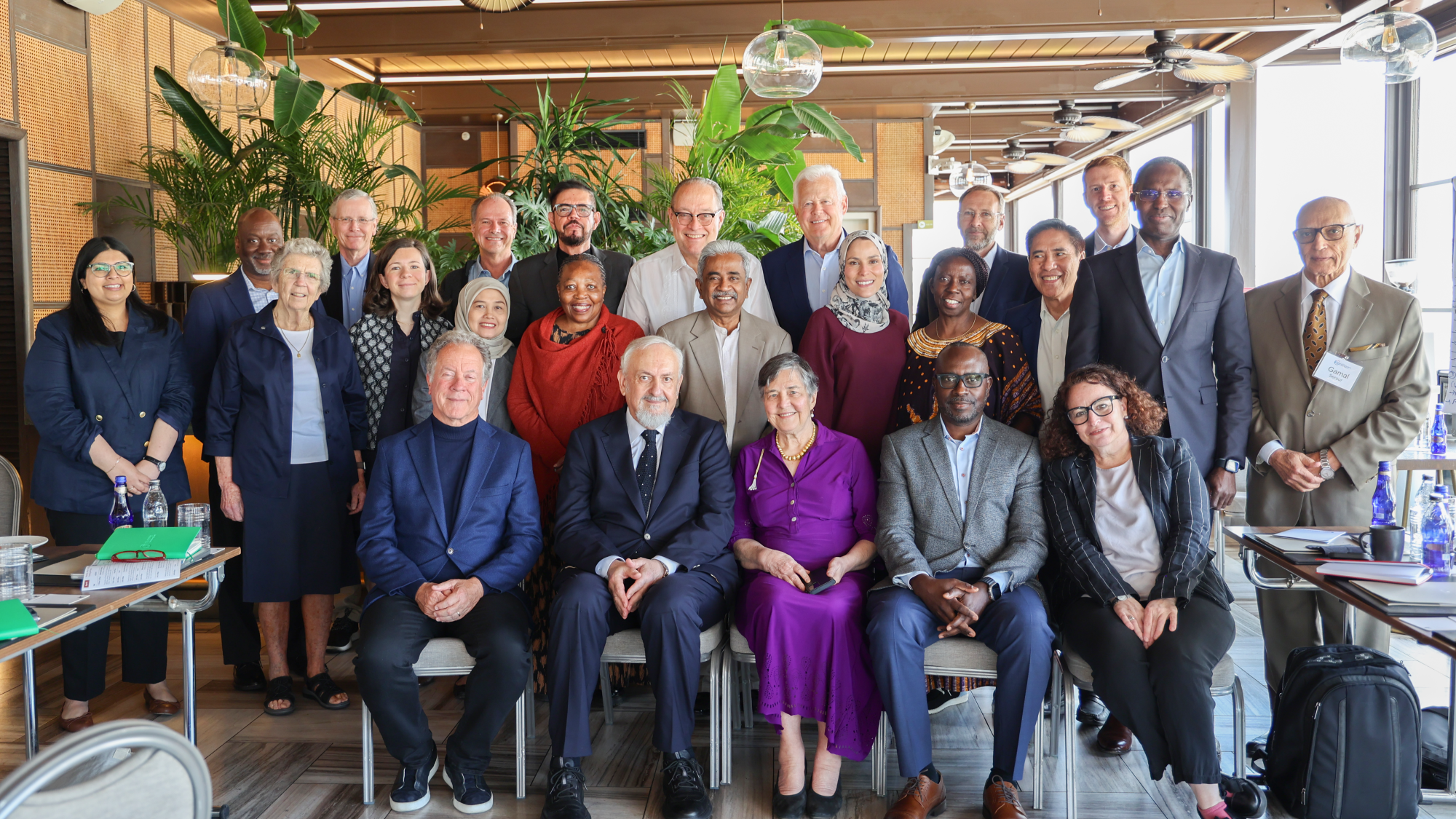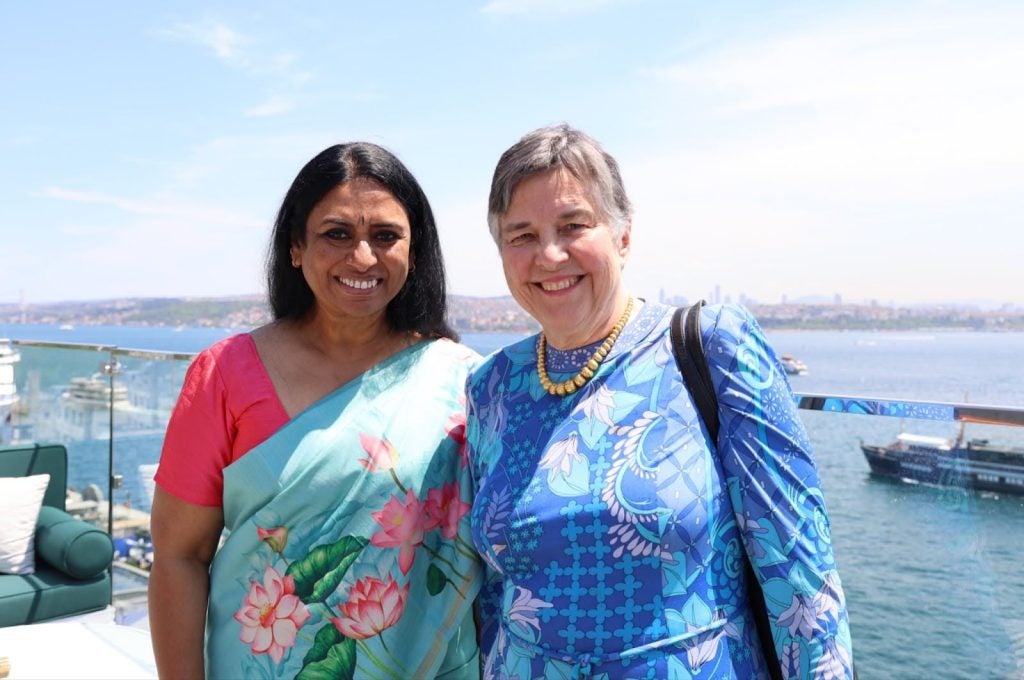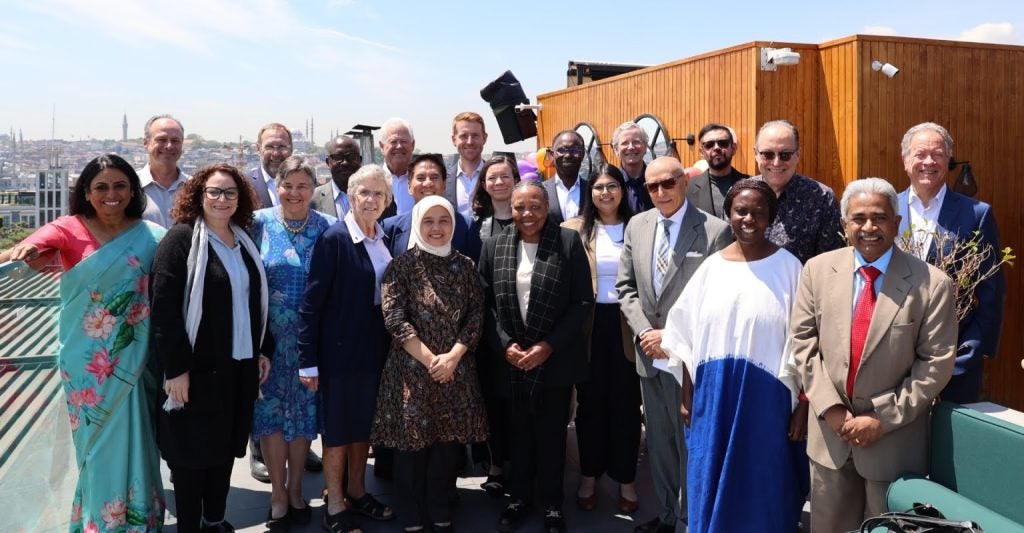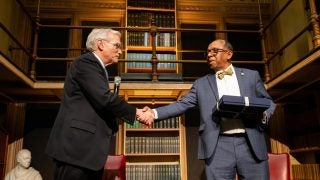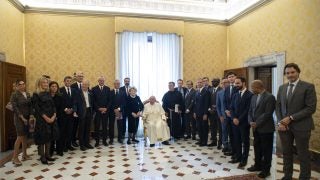Georgetown’s Global Health Institute has launched a new project that will explore how collaborations between faith and health leaders can improve global health outcomes and well-being.
In partnership with The Lancet, one of the world’s top medical journals, The Georgetown-Lancet Commission on Faith, Trust, and Health connects international faith leaders across traditions, health practitioners, researchers and academic leaders, and policymakers to help build bridges between the two worlds and strengthen trust in health systems.
The commission, which will be housed within the Global Health Institute, aims to advance dialogue and understanding between faith and health experts to address shifts in the public’s trust in health systems and science — an issue that grew during the COVID-19 pandemic and continues.
“Faith actors can serve as powerful partners in health, especially in times of crisis and in underserved communities,” says Deus Bazira, director of the Global Health Institute and the Center for Global Health Practice and Impact, and a co-chair of the commission.
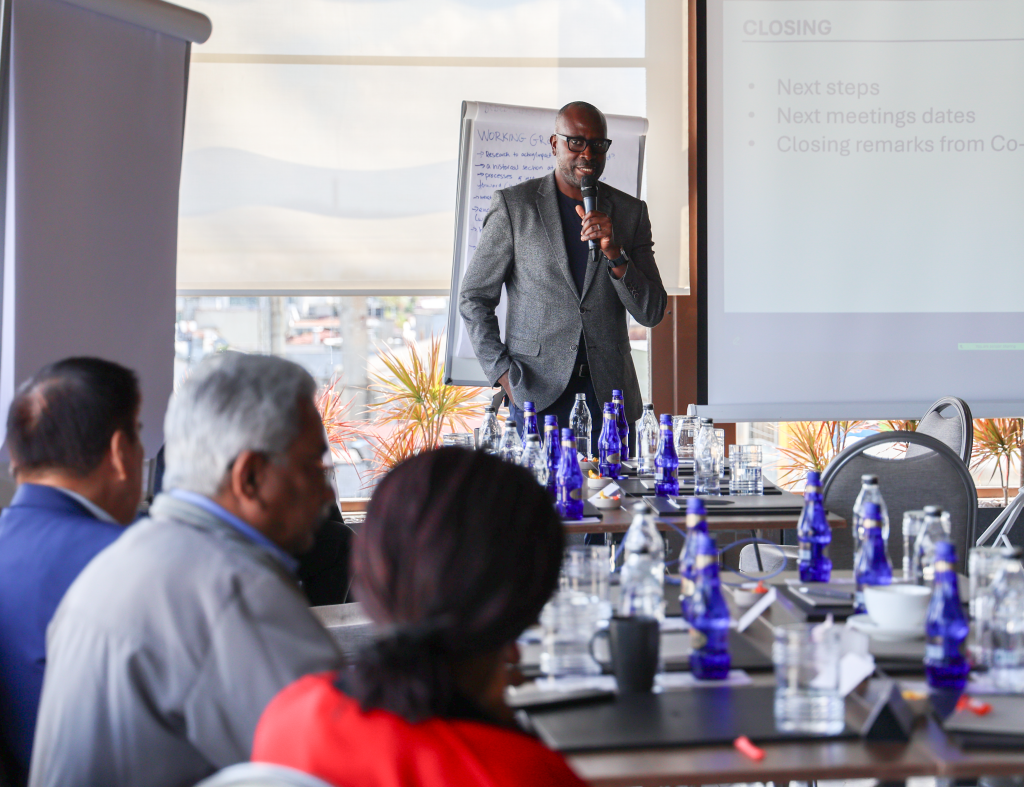
Following its first meeting in Istanbul, Turkey, in May, the commission’s co-chairs, along with several members, outlined the project’s goal in an article published in The Lancet.
The authors underscore that mistrust in institutions, combined with the politicization of health, structural inequities and the spread of misinformation, are weakening public confidence in health science and systems. They note that global health crises like the COVID-19 pandemic exposed major trust gaps between health authorities and the communities they serve.
At the same time, religious institutions and leaders are often uniquely positioned to influence health decisions and behaviors, the authors wrote, as they provide guidance, pastoral care and emotional support to the communities they serve. While trust in these institutions varies, more than 80% of the world’s population identify with a religious group, according to a report from the Pew Research Center the article cited.
Faith groups deliver care on the frontlines in underserved communities, but their work often runs parallel to other health efforts. Working together could amplify health efforts and strengthen trust in health science, the authors shared.
“Now, more than ever, building bridges between faith actors and health actors is crucial for public trust in health science and mutual learning,” the authors wrote.
